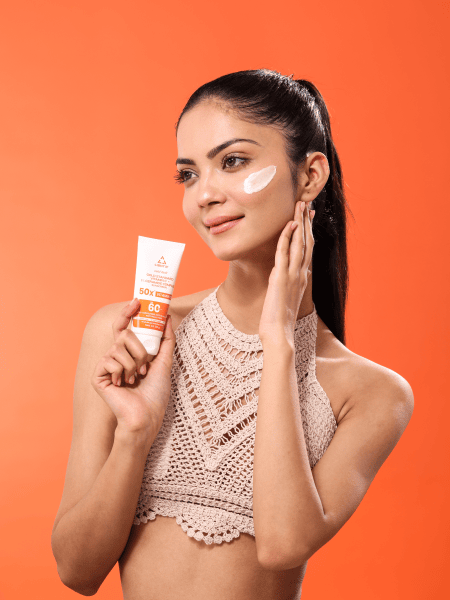
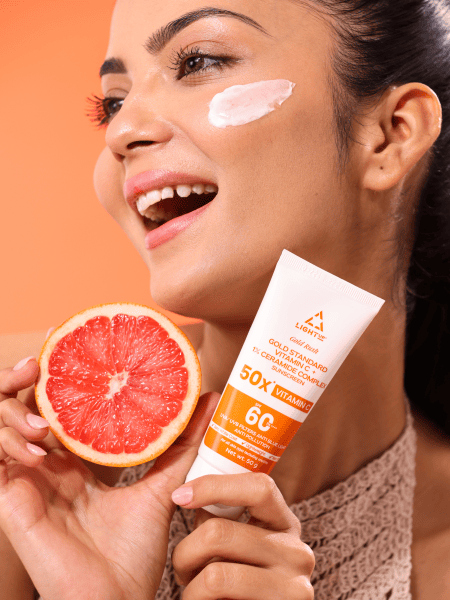
50X Brightening
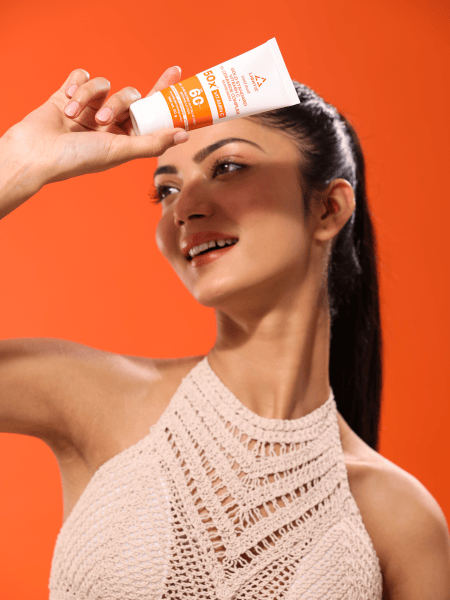
Strengthens Skin Barrier
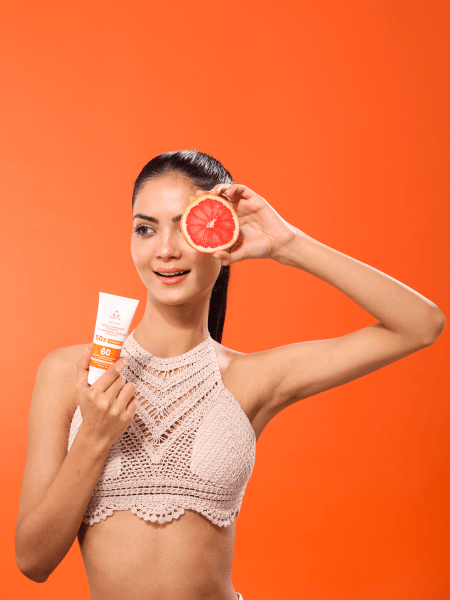
Tackles pigmentation
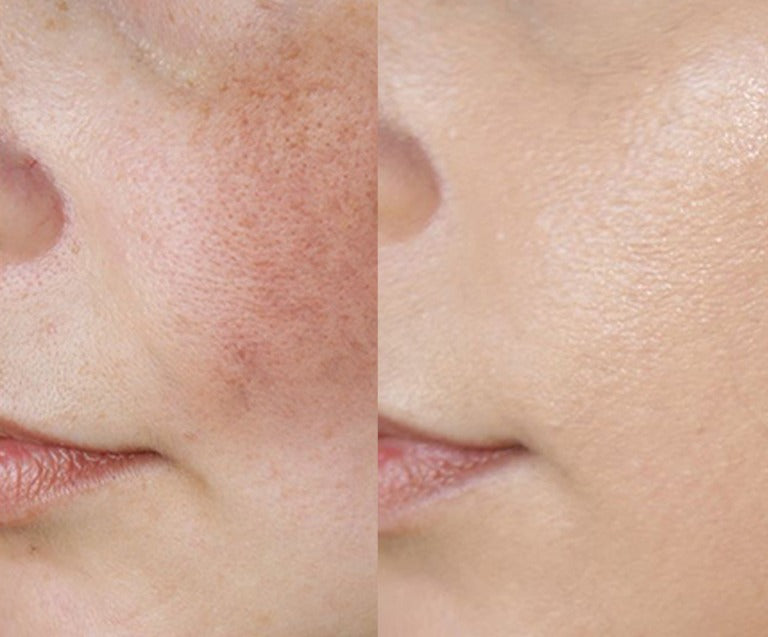
Clinical Results
No White Cast
Agreed there is no white cast
Reduction in tanning
Saw reduction in tanning
It absorb in 3 seconds
Said it absorbs in 3 seconds
Gold Rush
- OIL SOLUBLE. PENETRATES 3X FASTER.
- WORKS TO REDUCE PIGMENTATION AND SUN INDUCED SPOTS.
- NO WHITE CAST.
- GENTLE AND MILD.
- FRAGRANCE FREE AND NON IRRITANT
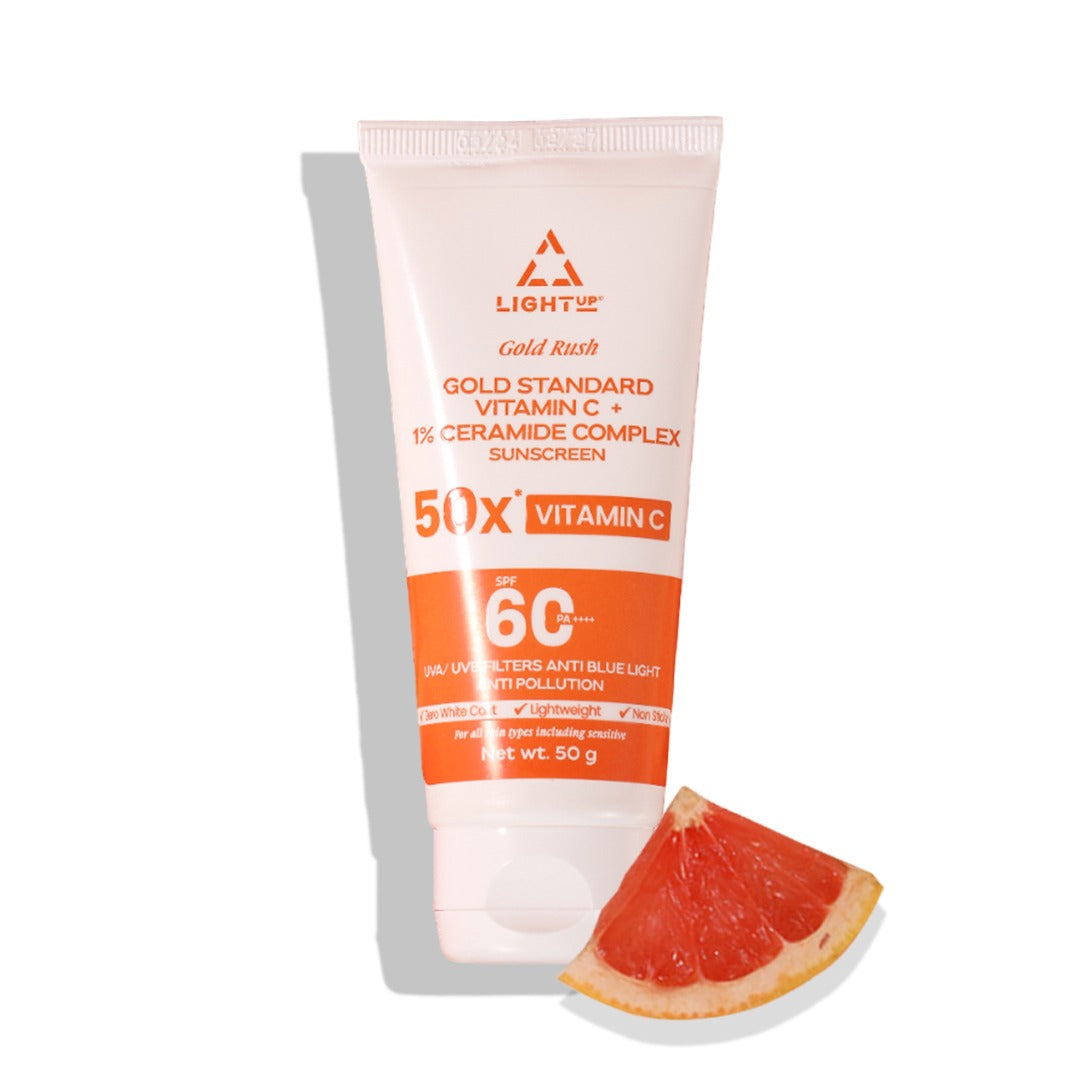
Other Sunscreens
- WATER SOLUBLE. DOES NOT PENETRATE.
- DOES NOT REDUCE PIGMENTATION AND SUN INDUCED SPOTS.
- LEAVES WHITE CAST.
- CONTAINS FRAGRANCE.
- IRRITATES SENSITIVE SKIN
Routine

Gold Standard Vitamin C
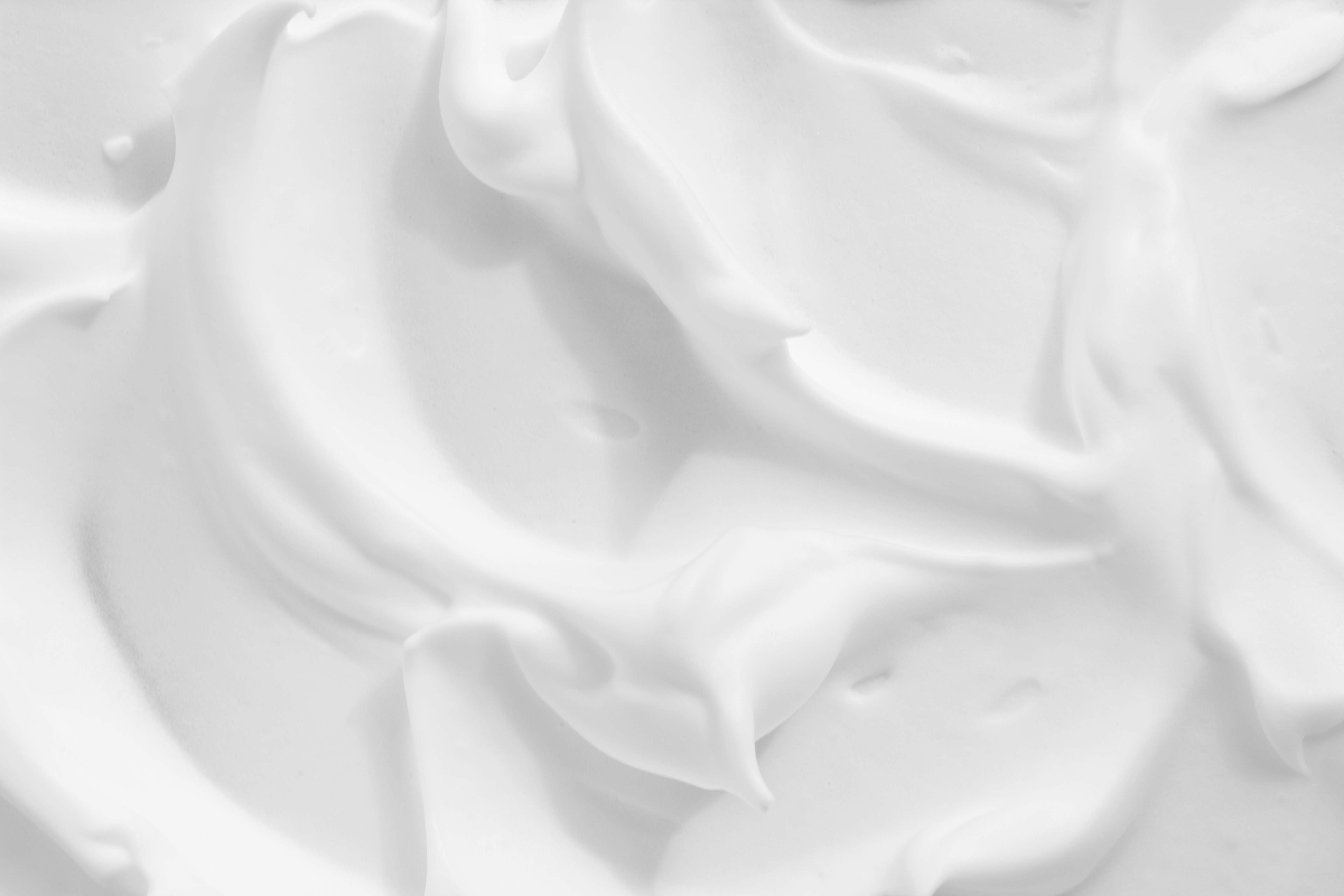
Ceramides

Moringa
MRP: ₹499 (Inclusive of all taxes)
MANUFACTURED BY: SAMARVIR BIOTECH PRIVATE LIMITED, V&PO Raja Khasa, Tehsil Indora Distt. Kangra, Himachal Pradesh - 176401
MARKETED BY: Light Up Lifestyle Pvt Ltd, B-11 Gulmohar Park, Ground Floor, New Delhi - 110049
SHELF LIFE: 36 MONTHS
COUNTRY OF ORIGIN: India
Ingredients List:
Aqua, Ethylhexyl Methoxycinnamate, Butyl Methoxydibenzoylmethane, Octocrylene, 1,3
Butylene glycol, Lecithin, Phenoxyethanol, Glycerin, Cetostearyl alcohol,Glyceryl Stearate,
PEG-100 Stearate, Sodium Polyacryloyldimethyl Taurate, Hydrogenated Polydecene,
Trideceth-10,Sodium Lactate, Sodium Gluconate, Methylene Bis-Benzotriazolyl
Tetramethylbutylphenol, Sea Mineral, Caesalpinia Spinosa Fruit Pod Extract, Helianthus
Annuus (Sunflower) Sprout Extract, Tetrahexyldecyl Ascorbate,Laminaria Digitata Extract
,Cetyl-Pg Hydroxyethyl Palmitamide, Ceramide EOP, Ceramide NG , Ceramide NP , Ceramide 4, Ceramide AP, Moringa Oleifera ( Moringa Extract ), Tocopheryl Acetate, Olive oil, Decyl
Glucoside, Propylene Glycol, Xanthan Gum, Titanium Dioxide, Sodium Benzoate,
Phenoxyethanol, Silica, Ethylhexylglycerin

